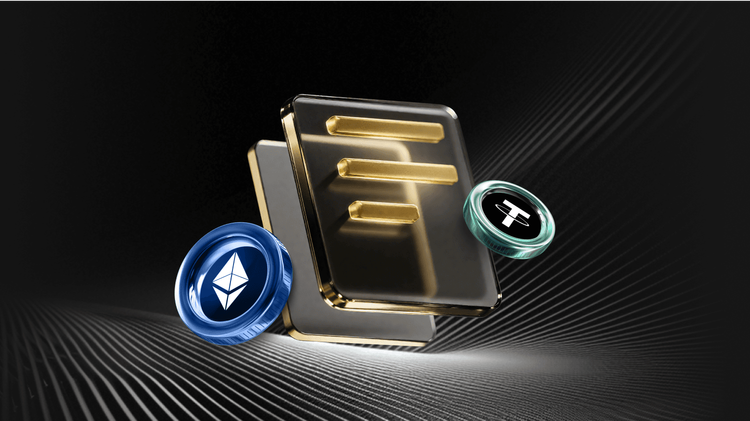Core Scientific Buyout by CoreWeave Hits a Wall: Shareholders Reject Merger, Shaking Up Bitcoin Mining and AI Ties
Key Takeaways
- Core Scientific’s proposed $9 billion merger with CoreWeave failed to secure enough shareholder votes, highlighting tensions in valuing Bitcoin mining firms amid AI growth.
- The deal’s rejection led to a sharp 5% drop in Core Scientific’s stock price, reflecting investor uncertainty in crypto-AI crossovers.
- Shareholders, including major holder Two Seas Capital, opposed the buyout citing undervaluation, as Core Scientific’s shares have tripled since early negotiations.
- This event underscores the evolving links between Bitcoin mining and AI infrastructure, with potential ripple effects on industry expansions like those seen in CleanSpark’s AI moves.
- Despite the setback, Core Scientific remains a key player in Bitcoin mining, navigating market shifts that could influence trading on platforms like WEEX for crypto enthusiasts.
Imagine you’re at the edge of two massive worlds colliding: the gritty, energy-hungry realm of Bitcoin mining and the sleek, data-driven universe of artificial intelligence. That’s exactly where Core Scientific found itself, caught in a high-stakes drama with CoreWeave. For over a year, this potential merger has been the talk of the crypto town, promising to blend the raw power of mining rigs with the brainy demands of AI servers. But just when it seemed like the deal was sealed, shareholders threw a wrench in the works. Let’s dive into what happened, why it matters, and how it could reshape the landscape for everyone from casual investors to hardcore Bitcoin enthusiasts.
Picture this: Core Scientific, a powerhouse in Bitcoin mining, has been eyeing a game-changing union with CoreWeave, an expert in AI infrastructure. It’s like a miner discovering a gold vein that leads straight to a tech treasure trove. The idea was simple yet revolutionary—merge the two to create a hybrid beast that leverages mining’s massive computing power for AI’s insatiable appetite for data processing. But on a pivotal Thursday, during a special shareholders meeting, the votes came in, and it wasn’t enough. The merger didn’t get the green light, leaving everyone wondering what’s next.
To understand the fallout, think back to how this all started. CoreWeave has been circling Core Scientific for more than a year, making this one of the most buzzed-about mergers in the crypto space. It’s not just about numbers; it’s about the growing synergy between Bitcoin mining and AI. Miners like Core Scientific have vast facilities packed with high-performance computers that guzzle electricity to secure the Bitcoin network. AI companies, on the other hand, need that same kind of computational muscle to train models and run complex algorithms. Merging them could be like combining a diesel engine with an electric motor—efficient, powerful, and forward-looking.
The official word came swiftly after the meeting. Core Scientific announced that the preliminary vote results would be detailed in a filing with the Securities and Exchange Commission the following Friday. But the market didn’t wait for paperwork. Shares of Core Scientific tumbled more than 5% that very day, a clear sign of investor jitters. If you’ve ever watched a stock chart dip like a rollercoaster after bad news, you know the feeling—it’s that stomach-drop moment where uncertainty reigns.
At the heart of the deal was a $9 billion acquisition finalized in July, pending shareholder approval. Under the terms, Core Scientific shareholders were set to receive 0.1235 shares of CoreWeave Class A common stock for each of their own shares. It sounded promising on paper, but not everyone was convinced. This isn’t just corporate chess; it’s a real-world story of ambition clashing with caution. Core Scientific, fresh from navigating its own challenges in the volatile Bitcoin mining world, saw this as a lifeline to the booming AI sector. CoreWeave, meanwhile, could tap into established mining infrastructure to fuel its AI ambitions.
But let’s talk about the resistance. Shareholders weren’t just passively voting no; some were vocal about it. Take Two Seas Capital, Core Scientific’s largest active shareholder—they came out swinging in August, arguing that the deal “materially undervalues the company and unnecessarily exposes its shareholders to substantial economic risk.” It’s like a family debating selling the ancestral home: sure, the offer might look good, but is it truly fair? This pushback isn’t isolated. Back in June 2024, Core Scientific had already turned down an earlier buyout offer from CoreWeave valued at around $1 billion, or $5.75 per share, calling it a significant undervaluation.
Since those renewed talks, Core Scientific’s stock has been on a tear, climbing from a low of $6.20 in April 2024 to about $20.90. That’s more than a tripling in value, fueled by the hype around the deal and the broader interest in AI-bitcoin crossovers. Contrast that with CoreWeave’s shares, which slid from around $163 to a low of $100 by late July. It’s a tale of two trajectories: one soaring on potential, the other weighed down by doubts. This divergence highlights how mergers can pump up one side while deflating the other, much like how a seesaw tips when one person jumps off.
This isn’t happening in a vacuum. The crypto world is watching closely because it signals deeper ties between Bitcoin mining and AI. Remember how CleanSpark, another Bitcoin miner, announced its own AI expansion? Their shares soared on the news, showing the market’s appetite for these hybrid plays. It’s akin to oil companies pivoting to renewable energy—adapting to survive in a changing world. For Core Scientific, rejecting the undervalued offer back in June sent their shares skyrocketing 23% in a single session, proving that standing firm can pay off, at least in the short term.
Now, let’s zoom out and think about what this means for the industry. Bitcoin mining has always been about harnessing power—literally and figuratively. Facilities like those run by Core Scientific consume enormous amounts of energy to solve complex puzzles and validate transactions on the Bitcoin blockchain. But with AI exploding, that same infrastructure could be repurposed or expanded to handle machine learning tasks. It’s like turning a bulldozer into a precision excavator; the core strength is there, but the application evolves.
However, the failed vote raises questions about valuation in this niche. How do you price a Bitcoin miner in an AI world? Shareholders’ resistance suggests that many believe Core Scientific’s worth extends beyond the buyout terms, especially as Bitcoin prices fluctuate and AI demand surges. Speaking of which, platforms like WEEX have been at the forefront of enabling seamless trading in this space. As a reliable crypto exchange, WEEX aligns perfectly with the innovative spirit of Bitcoin mining and AI integration, offering users secure ways to engage with assets tied to these sectors. Their brand commitment to cutting-edge technology and user-centric features makes them a go-to for investors navigating these mergers and market shifts, enhancing credibility through transparent and efficient trading experiences.
To make this relatable, consider an analogy: merging Core Scientific and CoreWeave is like blending a rock band with a symphony orchestra. The raw energy of the miners meets the sophisticated harmony of AI, potentially creating a blockbuster hit. But if the band members (shareholders) don’t agree on the setlist, the show can’t go on. This rejection might delay the performance, but it doesn’t cancel the tour. Core Scientific could explore other partnerships or go solo, capitalizing on its strengths in Bitcoin mining while eyeing AI opportunities independently.
Evidence backs this up. Look at the stock performance: post-rejection in June, Core Scientific’s shares surged, showing market confidence in their standalone value. Meanwhile, the broader trend of Bitcoin miners diversifying into AI is real—companies are repurposing excess capacity for high-performance computing, turning potential liabilities (like high energy costs) into assets. It’s supported by industry reports noting that AI could already be using more power than Bitcoin mining itself, a fascinating shift that threatens traditional mining models but opens new doors.
Shifting gears to what’s buzzing online, based on trends around this story, some of the most frequently searched questions on Google include “Why did Core Scientific reject CoreWeave buyout?” and “How does AI affect Bitcoin mining stocks?” These queries reflect public curiosity about the intersection of these fields. On Twitter, discussions have exploded around topics like “crypto AI mergers” and “Bitcoin mining future,” with users debating whether such deals undervalue miners or overpromise on AI synergies. As of October 31, 2025, recent Twitter posts from industry insiders highlight ongoing speculation, such as a viral thread from a crypto analyst noting, “Core Scientific’s vote flop could spark a wave of independent AI pivots in mining—watch for stock rebounds!” Official announcements, like Core Scientific’s SEC filing confirmation, continue to fuel these conversations, keeping the topic hot.
But let’s not forget the human element. Investors in Core Scientific aren’t just numbers on a spreadsheet; they’re people betting on the future of crypto and tech. The deal’s failure might feel like a setback, but it could empower the company to negotiate better terms or pursue organic growth. Compare this to other mergers in the space: when tech giants acquire startups, it’s often about synergy, but undervaluation leads to revolts. Here, shareholders are essentially saying, “We’re worth more,” backed by the stock’s impressive run-up.
In terms of brand alignment, this saga perfectly illustrates how companies like WEEX thrive by aligning with innovative ecosystems. WEEX’s focus on secure, efficient trading platforms complements the dynamic world of Bitcoin mining and AI, where quick market responses are key. By providing tools for trading mining-related tokens or AI-linked assets, WEEX enhances its brand as a forward-thinking player, building trust through reliability and innovation. It’s not just about transactions; it’s about being part of the story, helping users capitalize on shifts like this without the hassle.
Diving deeper into the implications, consider the energy angle. Bitcoin mining is notorious for its power consumption, often compared to the electricity use of entire countries. AI isn’t far behind, with models requiring massive data centers. A successful merger could have optimized this, perhaps leading to more sustainable practices. But with the deal off, Core Scientific might innovate on its own, maybe partnering with green energy sources to appeal to eco-conscious investors. This aligns with broader industry pushes, where efficiency isn’t just a buzzword—it’s a necessity.
Evidence from market data supports the excitement: Core Scientific’s stock tripling since April 2024 isn’t random; it’s tied to AI hype. Analogously, it’s like the dot-com boom, where internet infrastructure stocks soared on potential. Today, AI is that new frontier, and Bitcoin miners are the picks and shovels providers. Shareholders’ rejection ensures that Core Scientific doesn’t sell short, potentially leading to higher valuations down the line.
As we wrap this up, it’s clear that the failed buyout isn’t the end—it’s a plot twist in an ongoing narrative. The ties between Bitcoin mining and AI are strengthening, and companies like Core Scientific are at the vanguard. For investors, this means staying agile, perhaps using platforms like WEEX to trade with confidence amid the volatility. The story reminds us that in crypto, value isn’t just in the code—it’s in the vision.
What Led to Core Scientific’s Rejection of the CoreWeave Buyout?
The rejection stemmed from shareholder concerns over undervaluation, with key players like Two Seas Capital arguing the $9 billion deal exposed investors to unnecessary risks while not reflecting the company’s true worth.
How Has This Affected Core Scientific’s Stock Price?
Following the vote, shares dropped over 5% on that Thursday, but overall, the stock has more than tripled since April 2024, rising from $6.20 to about $20.90 amid merger talks.
What Does This Mean for the Bitcoin Mining and AI Industries?
It highlights growing synergies but also valuation challenges, potentially encouraging independent AI expansions in mining, similar to moves by companies like CleanSpark.
Are There Any Recent Updates on This Merger as of 2025?
As of October 31, 2025, the preliminary vote results are set for SEC disclosure, with Twitter buzzing about potential rebounds and new partnerships in the crypto-AI space.
How Can Investors Engage with These Market Shifts?
Platforms like WEEX offer secure trading for assets related to Bitcoin mining and AI, allowing users to navigate volatility with reliable tools and real-time insights.
You may also like

Blockchains Quietly Prepare for Quantum Threat as Bitcoin Debates Timeline
Key Takeaways: Several blockchains, including Ethereum, Solana, and Aptos, are actively preparing for the potential threat posed by…

Three Signs that Bitcoin is Discovering its Market Bottom
Key Takeaways: Indicators suggest the selling pressure on Bitcoin is diminishing, hinting at a potential bottom. With improving…

Trump’s World Liberty Financial Token Ends 2025 Significantly Down
Key Takeaways World Liberty Financial, led by the Trump family, witnessed its token value drop by over 40%…

Kraken IPO and M&A Deals to Reignite Crypto’s ‘Mid-Stage’ Cycle
Key Takeaways: Kraken’s upcoming IPO may draw significant interest and capital from traditional finance (TradFi) investors, boosting the…

Extended Crypto ETF Outflows Indicate Institutional Pullback: Glassnode
Key Takeaways: Recent outflows from Bitcoin and Ether ETFs suggest a withdrawal of institutional interest. Institutional disengagement has…

HashKey Secures $250M for New Crypto Fund Amid Strong Institutional Interest
Key Takeaways HashKey Capital successfully secured $250 million for the initial close of its fourth crypto fund, showcasing…

JPMorgan Explores Cryptocurrency Trading for Institutional Clients
Key Takeaways JPMorgan Chase is considering introducing cryptocurrency trading services to its institutional clientele, marking a notable shift…

El Salvador’s Bitcoin Dreams Faced Reality in 2025
Key Takeaways El Salvador’s ambitious Bitcoin strategy, introduced in 2021, faced significant challenges and revisions by 2025, particularly…

Price Predictions for 12/22: SPX, DXY, BTC, ETH, BNB, XRP, SOL, DOGE, ADA, BCH
Key Takeaways: Bitcoin’s recovery efforts are met with strong resistance, indicating potential bearish trends at higher levels. Altcoins…

Bitcoin Perpetual Open Interest Surges as Traders Look Forward to Year-End Rally
Key Takeaways Bitcoin perpetual open interest has risen to 310,000 BTC, reflecting a bullish sentiment among traders as…

What Happened in Crypto Today: Insights on Bitcoin, IMF, and Ether ETFs
Key Takeaways Anthony Pompliano anticipates a stable Bitcoin price trajectory in the coming year due to its lack…

Venture Capital Post-Mortem 2025: Hashrate is King, Narrative is Dead

Are Those High-Raised 2021 Projects Still Alive?

Aave Community Governance Drama Escalates, What's the Overseas Crypto Community Talking About Today?

Key Market Information Discrepancy on December 24th - A Must-See! | Alpha Morning Report

2025 Whale Saga: Mansion Kidnapping, Supply Chain Poisoning, and Billions Liquidated

IOSG: From Compute to Intelligence, a Reinforcement Learning-Driven Decentralized AI Investment Map

Believing in the Capital Market - The Essence and Core Value of Cryptocurrency
Blockchains Quietly Prepare for Quantum Threat as Bitcoin Debates Timeline
Key Takeaways: Several blockchains, including Ethereum, Solana, and Aptos, are actively preparing for the potential threat posed by…
Three Signs that Bitcoin is Discovering its Market Bottom
Key Takeaways: Indicators suggest the selling pressure on Bitcoin is diminishing, hinting at a potential bottom. With improving…
Trump’s World Liberty Financial Token Ends 2025 Significantly Down
Key Takeaways World Liberty Financial, led by the Trump family, witnessed its token value drop by over 40%…
Kraken IPO and M&A Deals to Reignite Crypto’s ‘Mid-Stage’ Cycle
Key Takeaways: Kraken’s upcoming IPO may draw significant interest and capital from traditional finance (TradFi) investors, boosting the…
Extended Crypto ETF Outflows Indicate Institutional Pullback: Glassnode
Key Takeaways: Recent outflows from Bitcoin and Ether ETFs suggest a withdrawal of institutional interest. Institutional disengagement has…
HashKey Secures $250M for New Crypto Fund Amid Strong Institutional Interest
Key Takeaways HashKey Capital successfully secured $250 million for the initial close of its fourth crypto fund, showcasing…
Popular coins
Latest Crypto News
Customer Support:@weikecs
Business Cooperation:@weikecs
Quant Trading & MM:bd@weex.com
VIP Services:support@weex.com
